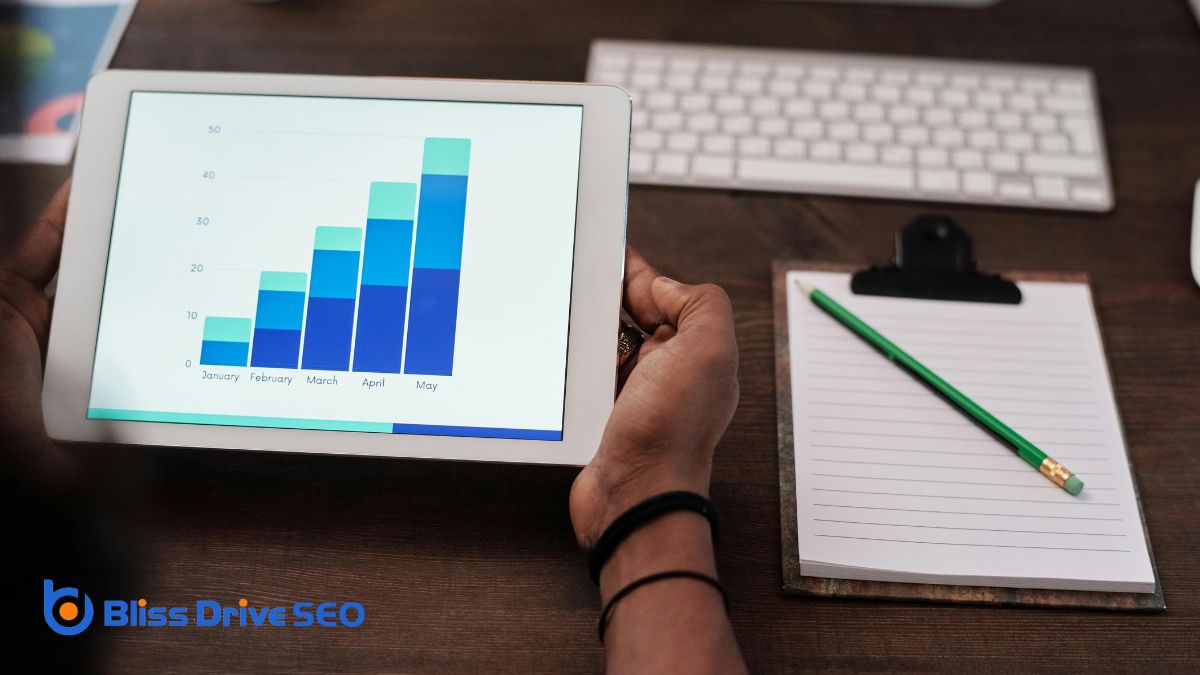Digital Marketing Services
Learn More About Us

You're excited to see your SEO efforts bear fruit, but how long should you really expect to wait? It's not a simple answer, as several factors come into play—like your website's age, industry competition, and the strength of your backlink profile. Generally, you might notice some changes in your rankingsThe position at which a website appears in the SERP. and traffic in about 3 to 6 months, but that's not a guaranteed timeframe. So, what's the secret to accelerating this process, and what pitfalls should you avoid to secure long-term success? Let's explore the intricacies that determine SEO timelines.
Grasping the timeline for SEO results can be challenging, but it's important for setting realistic expectations. When you set out on an SEO journey, patience becomes your dedicated companion. You might be excited to see changes overnight, but SEO is a long-term investment.
Typically, you'll start noticing some movement within three to six months. However, these initial changes might be subtle, like a slight increase in organic trafficVisitors who come to a website through unpaid search engine results. or improved rankings for a few keywordsWords or phrases that users type into search engines to find information..
Remember, SEO isn't a one-size-fits-all. Each website has unique characteristics, influencing how quickly results unfold. Factors like your site's age, competition in your nicheA specific segment of the market targeted by affiliates to promote products or services., and the quality of your content all play roles here.
If your website is new, expect a longer timeframe to build authority and trust with search engines. If your industry is highly competitive, climbing the ranks will require more effort and time.
Patience and persistence are essential. While you're waiting, continue optimizing your site and producing valuable content. This consistent effort is what eventually pays off.

When you're working on improving your SEO, the quality of your website content and the strength of your backlink profile play pivotal roles in how quickly you see results.
High-quality content that's relevant and engaging can boost your rankings faster by keeping visitors on your site longer.
Similarly, a strong backlink profile enhances your site's credibility, signaling search engines to improve your position in search results.
The essence of your website's content quality plays a pivotal role in how promptly your SEO efforts bear fruit. When you create high-quality, relevant content, search engines notice that they're designed to deliver the best information to users, so if your content meets that standard, your site will likely rank higher and faster.
Think about the value your content offers. Is it informative, engaging, and well-structured? If it is, you're on the right track.
Unique and original content also makes a difference. Search engines favor sites that provide fresh perspectives or address topics uniquely. Guarantee your content reflects your brand's voice and offers insights that others don't. This not only helps with SEO but also builds trust with your audience.
Consistency is another critical aspect. Regularly updating your site with new content signals to search engines that your site is active and worth indexingThe process of adding web pages into a search engine's database. more frequently. This can speed up how promptly you see results from your SEO efforts.
Lastly, focus on user experience. Clear headlines, easy navigation, and mobile-friendly design all contribute to content quality. When visitors find your site easy to use, they're more likely to stay longer, reducing bounce rates and boosting SEO.
Although often overlooked, the strength of your backlink profile is essential for expediting SEO success. BacklinksLinks from other websites pointing to your website, crucial for SEO. are like votes of confidence from other websites. The more quality links pointing to your site, the more search engines perceive you as trustworthy and authoritative. But it's not just about quantity; it's the quality of these links that truly matters.
Imagine a backlink from a well-respected site in your industry. This link can greatly enhance your site's credibility in the eyes of search engines. On the flip side, links from spammy or irrelevant sites can harm your reputation and slow down your SEO progress. So, you should focus on earning links from reputable sources that are relevant to your niche.
To strengthen your backlink profile, consider strategies like guest bloggingWriting and publishing articles on other websites to reach a new audience., partnerships, or creating shareable content. Engage with influencersIndividuals with the power to affect the purchasing decisions of others due to their authority, know... in your industry who might link to your content.
Also, regularly audit your backlinks. Use tools to identify and disavow harmful links that could negatively impact your SEO efforts. Remember, a robust backlink profile isn't built overnight. It requires consistent effort and strategic planning, but the payoff in SEO speed and success is well worth it.
Starting on the journey of SEO success begins with meticulous initial setup and planning. You can't overlook this pivotal phase, as laying a strong foundation determines how quickly you'll see results.
First, identify your target audience. Understand their needs, behaviors, and preferences. This helps tailor your content to attract and engage them effectively.
Next, conduct a thorough keyword researchThe process of finding and analyzing search terms that people enter into search engines.. Choose keywords that align with your business goals and resonate with your audience. Tools like Google Keyword Planner can guide you in finding terms with the right balance of competition and search volume. Once you've got your keywords, develop a content strategyA plan for creating, publishing, and managing content to meet business goals. that integrates them naturally.
Assess your website's current performance. Use tools like Google AnalyticsA web analytics service offered by Google that tracks and reports website traffic. to understand what's working and what needs improvement. Guarantee your site is mobile-friendly, loads quickly, and offers a seamless user experience. Don't forget to optimize your website's structure, making it easy for both users and search engines to navigate.
Set clear, measurable goals for your SEO efforts. Whether it's increasing traffic, boosting conversions, or enhancing brand visibility, having specific objectives keeps your strategy focused and trackable. With solid planning, you're well on your way to reaping the benefits of SEO.

When you focus on on-page optimizationImproving individual webpages to rank higher and earn more relevant traffic in search engines., you'll want to pay attention to key elements like meta tagsHTML tags that provide information about a web page to search engines and visitors., headings, and content quality. These components play an important role in improving your site's visibility and user experience.
To gauge success, regularly track metrics such as bounce rates and average session duration.
To maximize the impact of your website's on-page optimization, focus on key elements such as title tags, meta descriptions, header tags, and keyword placement. Start by crafting unique title tags for each page. They should be descriptive and include your primary keyword to help search engines understand your content.
Your meta descriptions, though not a direct ranking factor, play an essential role in attracting clicks. Write compelling descriptions that accurately summarize your page content and entice users to click through.
Don't overlook header tags. They structure your content and improve readability, helping both users and search engines navigate your page. Use H1 tags for main titles and H2-H6 for subheadings, incorporating relevant keywords naturally without overstuffing.
Keyword placement is crucial. Identify primary and secondary keywords and strategically include them in your content, ensuring they fit naturally. Place them in the introduction, throughout the body, and in the conclusion for maximum effect.
Optimizing your website's key elements sets the stage for measuring the success of your on-page efforts. Once you've adjusted titles, meta descriptions, headers, and content, it's time to see if those changes are making an impact. Start by tracking your organic traffic using tools like Google AnalyticsThe systematic computational analysis of data or statistics to gain insights and support decision-ma.... A steady increase in visitors from search engines suggests your efforts are paying off. Keep an eye on bounce rates, too. If users are sticking around longer, it means your content is engaging and relevant.
Next, monitor keyword rankings. Tools like Google Search ConsoleA tool by Google that helps monitor and maintain your site's presence in search results. can help you see if your page is climbing up the search results. Improved rankings often correlate with better on-page optimization, so this data is essential.
Don't forget to check conversionThe completion of a desired action by a referred user, such as making a purchase or filling out a fo... rates. After all, the goal isn't just to attract visitors but to turn them into customers or subscribers.
While crafting an effective SEO strategy, content creation plays a pivotal role in determining your website's success. By consistently producing high-quality, relevant content, you increase your chances of attracting and retaining visitors. Search engines prioritize fresh and authoritative content, so your website is more likely to rank higher in search results if you focus on delivering valuable information to your audience.
To create content that resonates, you need to understand your target audience's needs and interests. Conduct keyword research to identify what your audience is searching for, and tailor your content to address those queries. Use clear, concise language and organize your content logically to enhance user experience. This approach not only engages your readers but also helps search engines understand the context and relevance of your content.
Don't forget to update your existing content regularly. This signals to search engines that your site is active and continuously providing up-to-date information. Incorporate multimedia elements like images, videos, and infographicsVisual representations of information, data, or knowledge intended to present complex information qu... to enrich your content, making it more engaging and shareable. By focusing on quality content creation, you're laying a strong foundation for long-term SEO success.

A robust SEO strategy isn't complete without focusing on the importance of backlink building. Backlinks are like votes of confidence from other websites, signaling to search engines that your content is valuable and trustworthy. When you get backlinks from reputable sites, your site's authority increases, which can boost your rankings. Here's why backlink building matters:
To effectively build backlinks, focus on creating high-quality content, engaging with industry influencers, and utilizing guest bloggingWriting and publishing articles on a website to provide information and engage readers.. This effort will pay off by strengthening your site's SEO and driving more organic traffic.
Keeping a close eye on your SEO performance is essential for success. You can't just set up your strategy and forget about it. Regularly monitoring your efforts helps you understand what's working and what's not.
Tools like Google Analytics and Google Search Console are used to track metrics such as traffic, bounce rates, and keyword rankings. These insights will provide you with a clear picture of your site's performance.
Don't be afraid to make adjustments based on the data you collect. If certain keywords aren't bringing traffic, consider tweaking your content or trying new terms.
Maybe your bounce rateThe percentage of visitors who leave a website after viewing only one page. is high on some pages; this could indicate that the content isn't engaging enough or doesn't match user intent. Testing different strategies and making data-driven changes can greatly improve your SEO results.
In your SEO journey, patience is vital. You'll likely see changes within 3 to 6 months, but it depends on your website's age, industry competition, and content quality. Focus on creating high-quality content and building a strong backlink profile to speed up results. Keep a close eye on your strategies and be ready to adjust them based on data insights. Remember, continuous effort and adaptability are your best allies for long-term SEO success.
